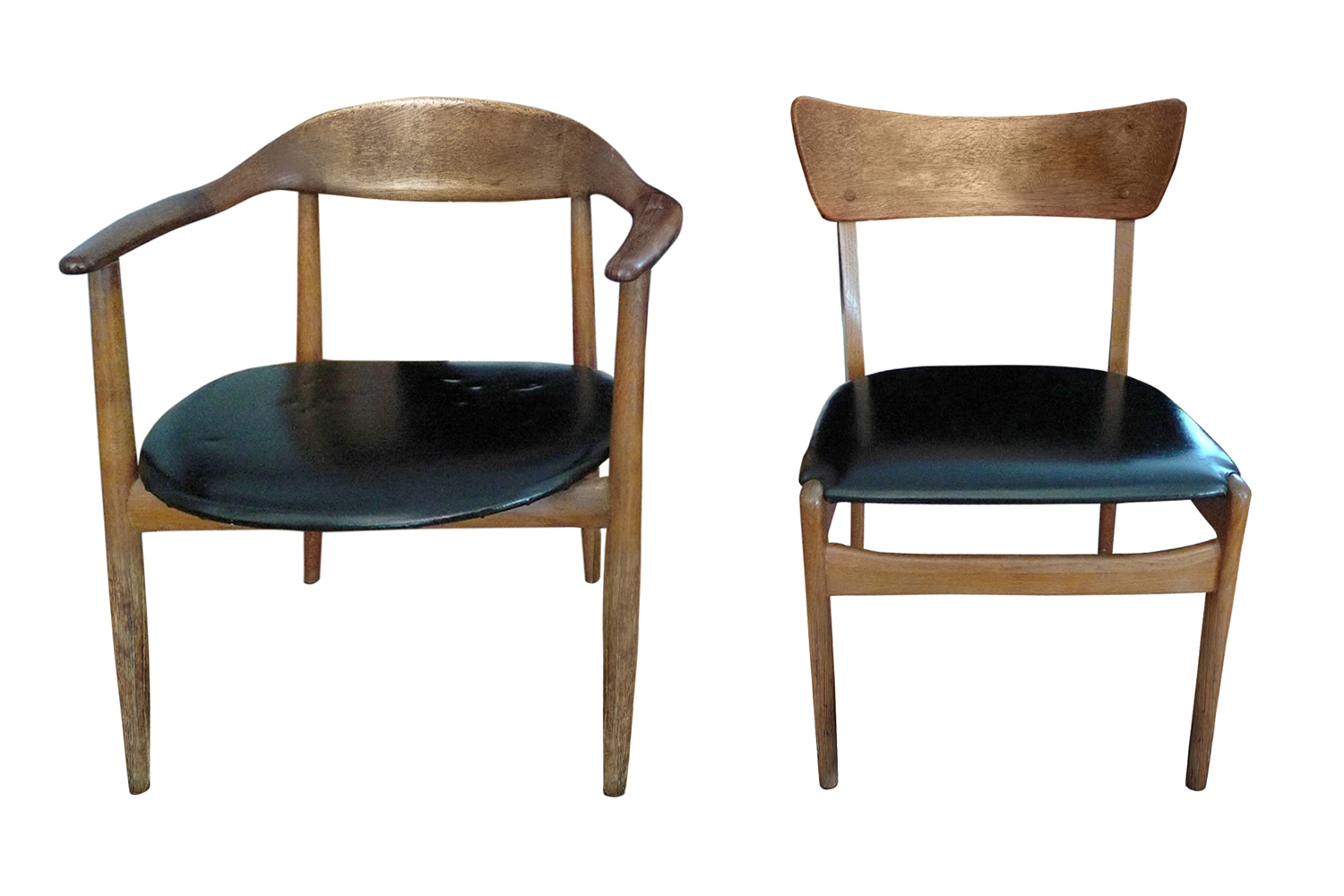Restoring a Danish Modern Classic
From the desk of Amy Frederickson - vintage enthusiast, revitalization fanatic and Revitaliste founder
As described in a previous blog post, my biggest Craigslist score was a set of six Danish mid-century modern chairs that were the perfect complement to my prized Hans Wagner dining table. To my great delight, I discovered that these chairs were indeed the real deal—manufactured by Randers Møbelfabrik, a leader in the Danish mid-century furniture scene. Though they would require a lot of work to bring back to their former glory, they were so well constructed that it was undoubtedly worth the investment to revitalize them.
Revitalization Checklist
Re-glue all joints of chairs—very wobbly
Remove water stains and other discoloration on wood
Stain a slightly richer brown
Reupholster seats
Danish furniture designers and manufacturers in the '50s and '60s were at the forefront of mastering the technique of fitting wood together using dowels and threaded bolts, so pieces were often manufactured without nails or screws. This method of construction lends to both the beautiful lines of the pieces as well as the relative ease with which repairs can be made.
Design Decisions
At the time I acquired these chairs, the only furniture in my dining room was a large teak dining table and an antique mahogany buffet sitting atop a rug-less wood floor…in other words, a lot of brown. My initial inclination was to bring in a fun pattern or a vibrant color on the upholstered seats. But it soon became apparent that there are times when one simply shouldn’t mess with a classic design. A simple black fabric on the seats allows the elegant shape of the chairs and beauty of the wood to take the spotlight. Never a fan of black vinyl (except as it pertains to music), I opted for a slight twist on the traditional vinyl by using a black boucle-like fabric from Kvadrat, a Danish textile company now part of Maharam. The “Hallingdal” upholstery fabric line is a true mid-century classic that comes in an array of colors.
Teak, walnut and rosewood were the primary woods used by Danish furniture designers of this era. I adore the rich red tones of rosewood and the warm brown tones of walnut but I have never loved the orange tones of teak (despite the fact that I own an entire dining set of teak...what can I say, I'm a sucker for a shapely body). I chose to stain the chairs a slightly richer brown to play down the brassy orange color—kind of like getting low-lights rather than highlights from your hair colorist.
Things To Keep In Mind
Even the most wobbly and unstable chair can be repaired—but make sure it’s a quality piece that warrants the investment
Black fabric is great for concealing stains but highlights crumbs—be prepared to vacuum regularly
There’s nothing more rewarding than restoring a quality-constructed furnishing to reflect its original grandeur. When it comes to revitalizing these pieces, there’s no need to be purist about how you go about it. Whether staying true to the item’s heritage or going in a completely new direction, the process is sure to result in a one-of-a-kind furnishing that you’ll cherish for years to come.
Wondering where to restore your mid century modern furniture? Revitaliste is here to help!
Photography by guillermo gusils leon



